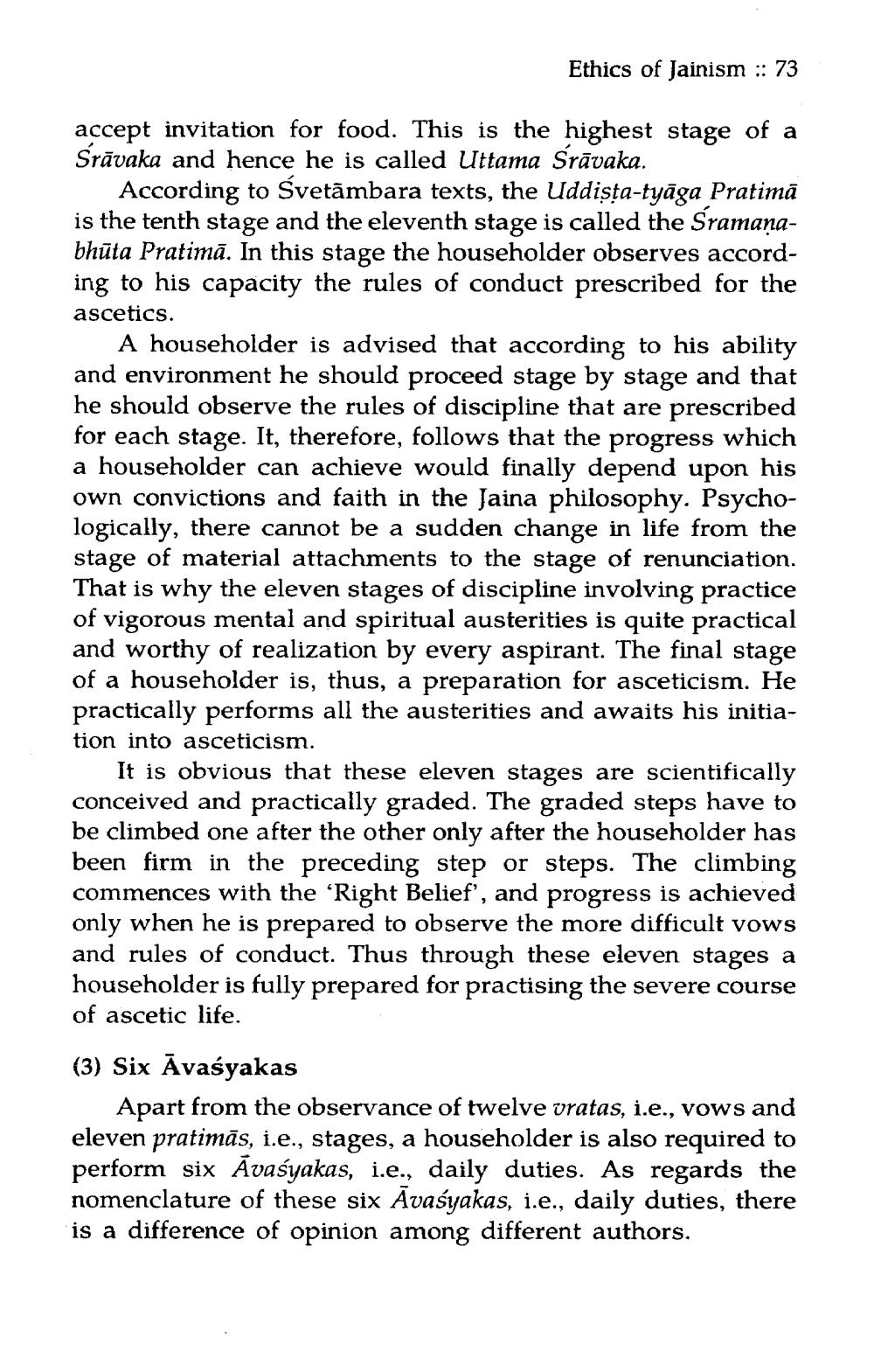________________
Ethics of Jainism :: 73
accept invitation for food. This is the highest stage of a Srāvaka and hence he is called Uttama Srāvaka.
According to Svetāmbara texts, the Uddista-tyāga Pratimā is the tenth stage and the eleventh stage is called the Sramaņabhūta Pratimā. In this stage the householder observes according to his capacity the rules of conduct prescribed for the ascetics.
A householder is advised that according to his ability and environment he should proceed stage by stage and that he should observe the rules of discipline that are prescribed for each stage. It, therefore, follows that the progress which a householder can achieve would finally depend upon his own convictions and faith in the Jaina philosophy. Psychologically, there cannot be a sudden change in life from the stage of material attachments to the stage of renunciation. That is why the eleven stages of discipline involving practice of vigorous mental and spiritual austerities is quite practical and worthy of realization by every aspirant. The final stage of a householder is, thus, a preparation for asceticism. He practically performs all the austerities and awaits his initiation into asceticism.
It is obvious that these eleven stages are scientifically conceived and practically graded. The graded steps have to be climbed one after the other only after the householder has been firm in the preceding step or steps. The climbing commences with the ‘Right Belief', and progress is achieved only when he is prepared to observe the more difficult vows and rules of conduct. Thus through these eleven stages a householder is fully prepared for practising the severe course of ascetic life. (3) Six Āvasyakas
Apart from the observance of twelve vratas, i.e., vows and eleven pratimās, i.e., stages, a householder is also required to perform six Avaśyakas, i.e., daily duties. As regards the nomenclature of these six Avaśyakas, i.e., daily duties, there is a difference of opinion among different authors.




